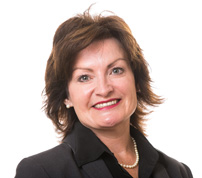Top 10 Things to Know About the New Keeping Children Safe in Education Guidance
As of September 2016 the new Keeping Children Safe in Education guidance (KCSIE) will commence. It is important that you are aware of the main changes that may be relevant to you.
On 5 September 2016, the new Keeping Children Safe in Education guidance (KCSIE) comes into force. It is important that you are aware of the main changes, here are the main things you need to know.
1. A Copy of Part One Must be Provided to Staff at Induction
KCSIE requires that all staff read Part 1 and is now explicit that a copy of Part 1 should be provided to all staff on induction. There is also now imposed on the Academy Trust a responsibility to ensure that 'mechanisms are in place to assist staff to understand and discharge their role and responsibilities as set out in Part 1'.
We have developed an e-learning module to help you fulfil this obligation. Alongside this, staff members should receive safeguarding and child protection updates, as required, but at least annually.
2. Whistleblowing
The sections concerning whistleblowing have been expanded upon to facilitate staff to report any incidents that they are aware of, without the fear of repercussions. Previously, the guidance stated that alternative whistleblowing channels may be available to staff who feel unable to raise an issue, or feel that their genuine concerns are not being met. In the amended guidance, an alternative route is provided to staff members in the form of the NSPCC whistleblowing helpline.
3. New Referral Flowchart
Under the new referral flowchart, there is a new responsibility on the local authority to make decisions about the course of action within one working day of the referral being made.There is also as a duty to let the referrer know the outcome. Any decisions made by the local authority will also be recorded in writing.
4. Online Safety
A new Annex has been included in the revised guidance addressing the online safety of students. It has established that, whilst trusts should do all that they can to protect children from potentially harmful and inappropriate online material, the measures that are taken should be reasonable, and they should not 'overblock' the information available to children. Instead, schools need to establish an effective approach to online safety 'to protect and educate the whole school or college community in their use of technology and establish mechanisms to identify, intervene and escalate any incident where appropriate'.
5. Mobile Technology
Similarly to online safety, mobile technology is now addressed in the new guidance. Governors and proprietors should consider 'a whole school approach to online safety. This will include a clear policy on the use of mobile technology in the school' including, but not limited to, 3G and 4G technologies.
6. Updating of Definitions/Specific Safeguarding Issues
In line with the expansion of the guidance with regards to online safety and mobile technology, the specific safeguarding issues have been updated to include issues such as sexting. Further updates have also been implemented, including the removal of the word 'teenage' from 'teenage relationship abuse' to expand the scope of the issues, as well as the definition of abuse to include areas such as abuse via the internet.
7. Early Help
In amending the guidance, an emphasis was placed on the importance of 'early help'. This means 'providing support as soon as a problem emerges at any point in a child’s life, from the foundation years through to the teenage years.' Staff may be required to support other agencies and professionals in an early help assessment.
8. Leadership
It is now a requirement that a senior board level lead will have responsibility for the trust's safeguarding arrangements. The designated safeguarding lead (DSL) and any deputies should undergo training, to provide them with the knowledge and skills required to carry out this role. This training should be updated every two years. During term time, the DSL and/or a deputy should always be available during school hours for staff in the school to discuss any safeguarding concerns that they may have.
9. Ensure
Trusts should ensure safeguarding is taught and ensure that the school's child protection policy includes procedures to minimise the risk of peer on peer abuse. The policy should also set out how allegations of peer on peer abuse will be investigated and dealt with, as well as ensuring that policies and procedures acknowledge that barriers exist when recognising abuse and neglect of CLA and SEN pupils.
10. Host Families
From September only arrangements made by parents will definitely fall within the private arrangement exemption.
